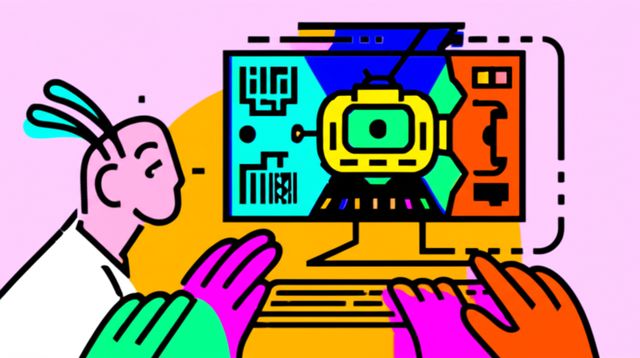Optical Character Recognition
Optical Character Recognition (OCR) is a technology that allows computers to read and interpret text from images. It is used in a wide variety of applications, including document scanning, data entry, and image analysis. OCR works by converting images of text into digital text that can be processed by computers.
Why Learn OCR?
There are many reasons to learn OCR. Some of the most common reasons include:
- Curiosity: OCR is a fascinating technology that can be used to solve a variety of problems. It is a great way to learn about computer science, image processing, and natural language processing.
- Academic requirements: OCR is a topic that is often covered in computer science and engineering courses. Learning OCR can help you to get a better understanding of these subjects.
- Career development: OCR is a valuable skill for a variety of careers, including data entry, document management, and image analysis. Learning OCR can help you to improve your job prospects and earn a higher salary.
How to Learn OCR
There are many ways to learn OCR. Some of the most common ways include:
- Online courses: There are many online courses available that can teach you OCR. These courses typically cover the basics of OCR, as well as more advanced topics such as image processing and natural language processing.
- Books: There are also a number of books available that can teach you OCR. These books typically provide a more in-depth coverage of the topic than online courses.
- Hands-on experience: The best way to learn OCR is by getting hands-on experience. You can do this by working on OCR projects, such as scanning documents or extracting text from images.
Careers in OCR
There are a number of careers that involve working with OCR. Some of the most common careers include:
- Data entry clerk: Data entry clerks use OCR software to enter data from paper documents into computers.
- Document management specialist: Document management specialists use OCR software to manage and organize electronic documents.
- Image analyst: Image analysts use OCR software to analyze images and extract data from them.
Personality Traits and Interests
People who are interested in learning OCR typically have the following personality traits and interests:
- Analytical: People who are good at OCR are able to think critically and solve problems.
- Detail-oriented: People who are good at OCR are able to pay attention to detail and accuracy.
- Interested in technology: People who are interested in OCR are typically interested in technology and how it can be used to solve problems.
Benefits of Learning OCR
There are many benefits to learning OCR. Some of the most common benefits include:
- Improved job prospects: OCR is a valuable skill for a variety of careers. Learning OCR can help you to improve your job prospects and earn a higher salary.
- Increased productivity: OCR can help you to automate tasks and improve your productivity.
- Better decision-making: OCR can help you to extract data from images and make better decisions.
Projects for Learning OCR
There are a number of projects that you can do to learn OCR. Some of the most common projects include:
- Scan and OCR a document: This is a simple project that can help you to get started with OCR. You can use a scanner to scan a document and then use OCR software to convert the scanned image into digital text.
- Build an OCR app: This is a more advanced project that can help you to learn more about OCR and how it works. You can build an OCR app using a programming language such as Python or Java.
- Extract data from images: This is a project that can help you to learn how to use OCR to extract data from images. You can use OCR software to extract data from images such as product labels or receipts.
How Online Courses Can Help You Learn OCR
Online courses can be a great way to learn OCR. Online courses can provide you with the knowledge and skills you need to get started with OCR. They can also provide you with the opportunity to get hands-on experience with OCR software.
When choosing an online course, it is important to consider your learning style and goals. If you are a beginner, you may want to start with a course that covers the basics of OCR. If you are more experienced, you may want to choose a course that covers more advanced topics.
Online courses can provide you with a number of benefits, including:
- Flexibility: Online courses can be accessed at any time, from anywhere. This makes it easy to fit learning into your busy schedule.
- Affordability: Online courses are often more affordable than traditional classroom courses.
- Variety: There are a variety of online courses available, so you can find one that fits your learning style and goals.
Are Online Courses Enough?
Online courses can be a great way to learn OCR, but they are not always enough. If you are serious about learning OCR, you may want to consider supplementing your online learning with other resources, such as books or hands-on experience.
However, online courses can provide you with a solid foundation in OCR and help you to get started with this exciting technology.


